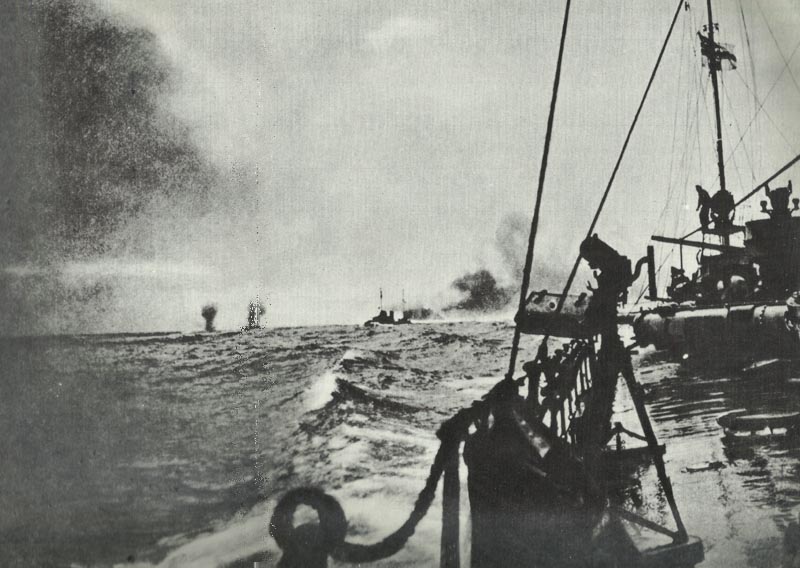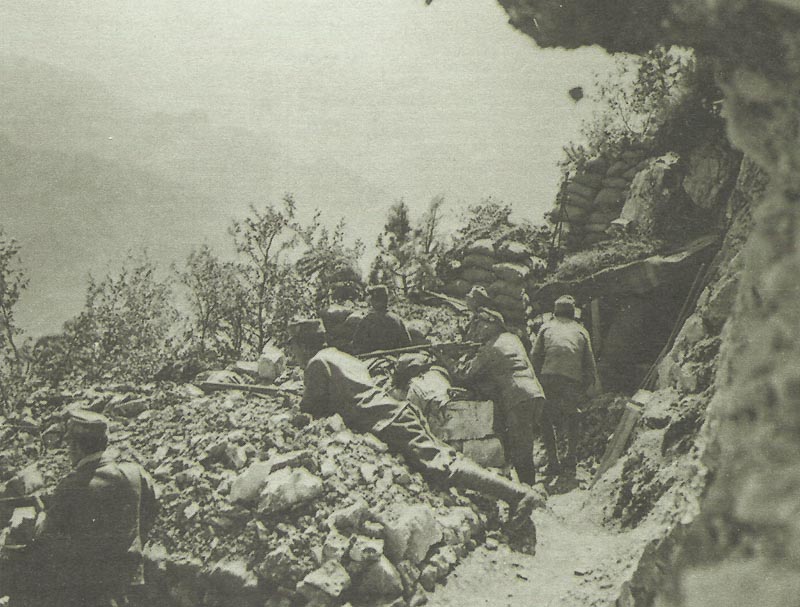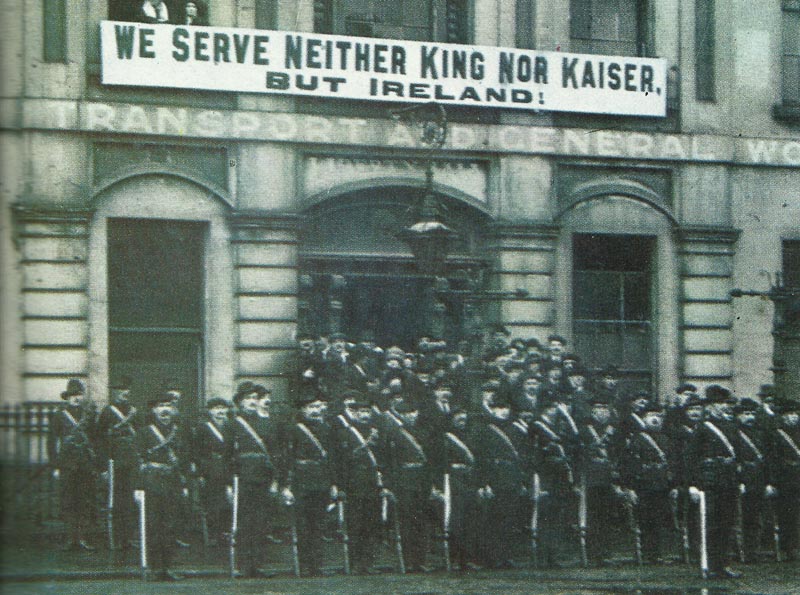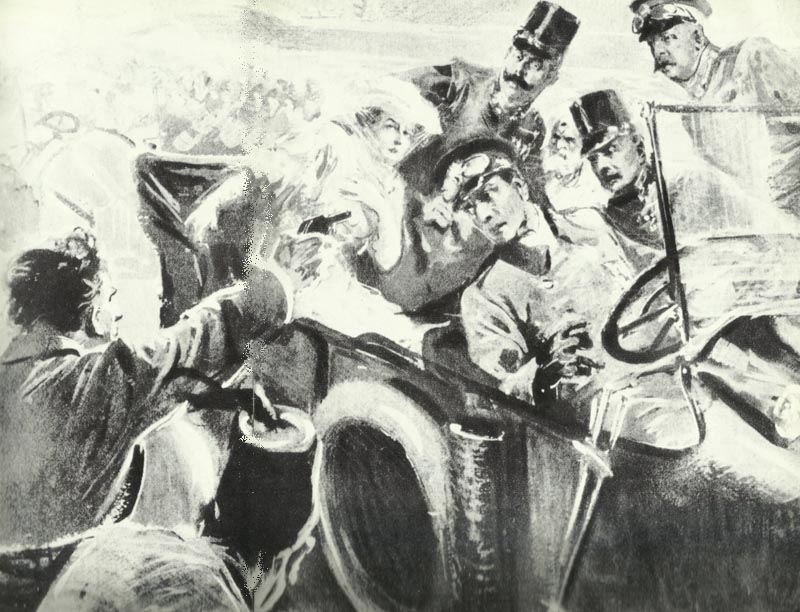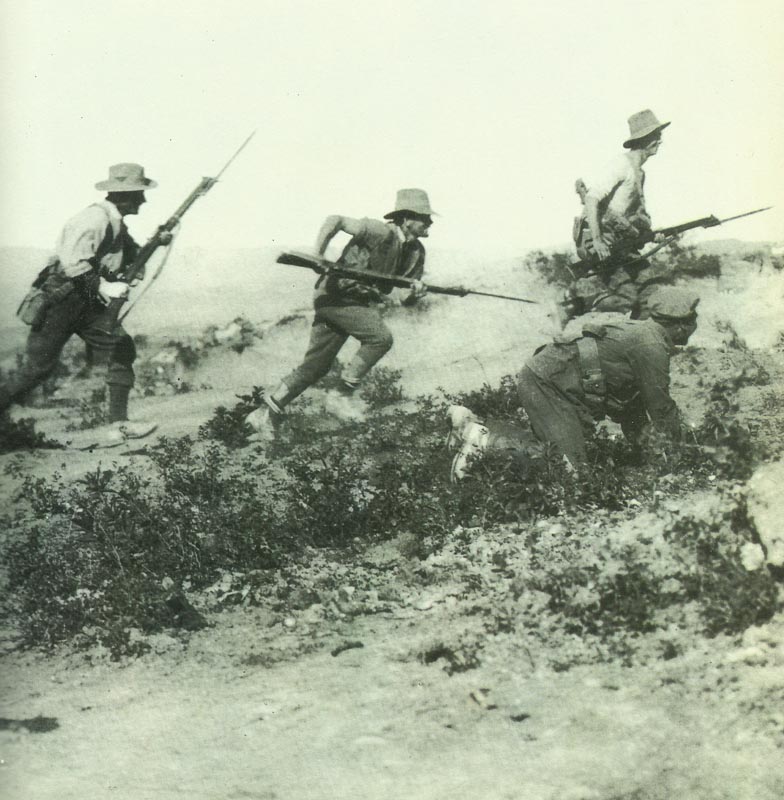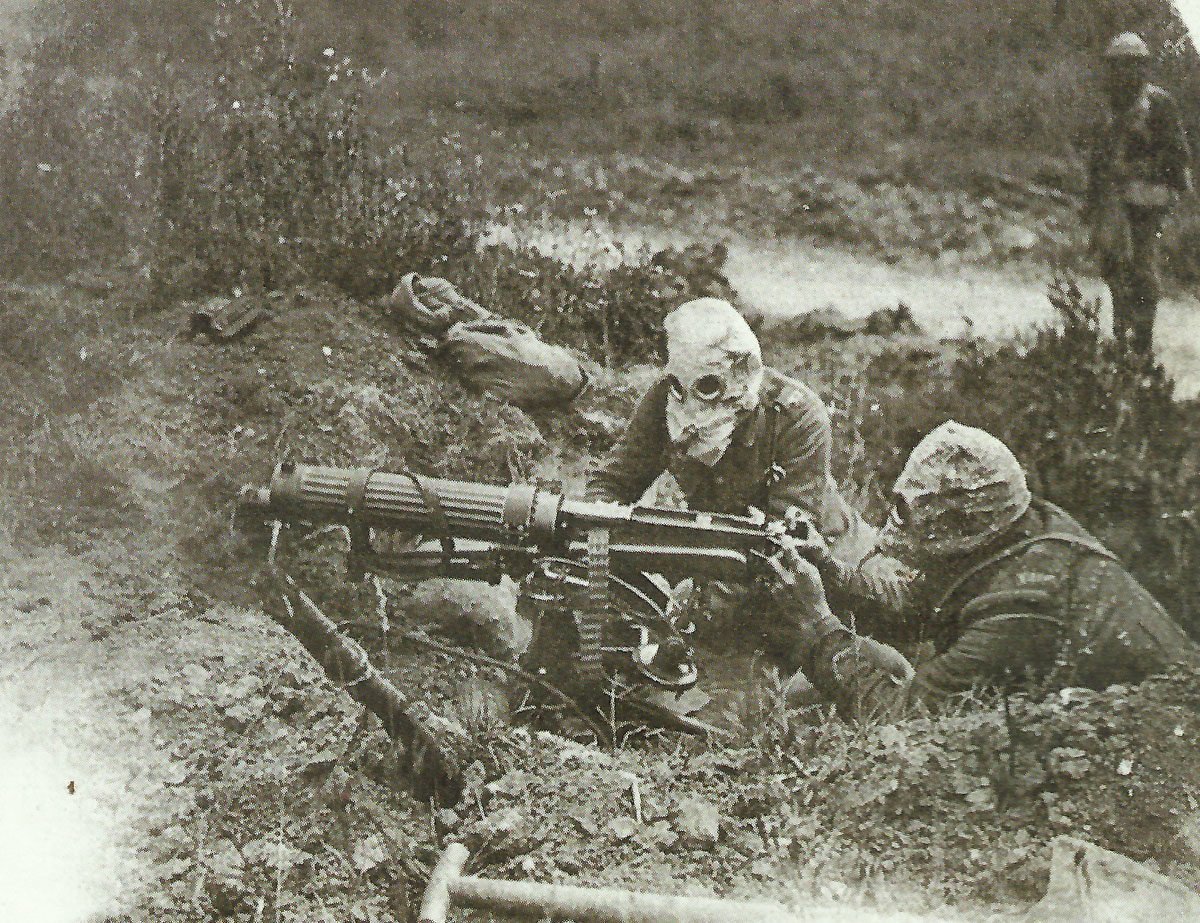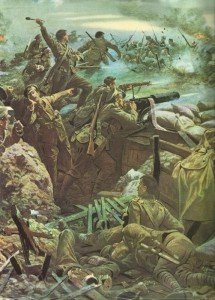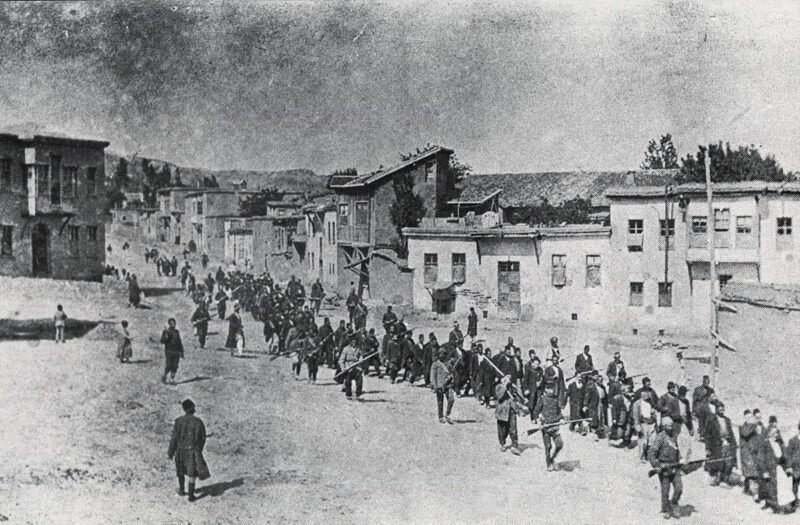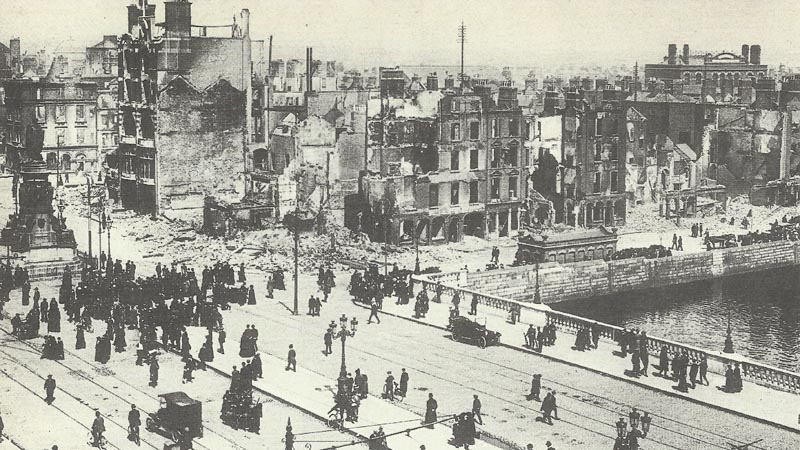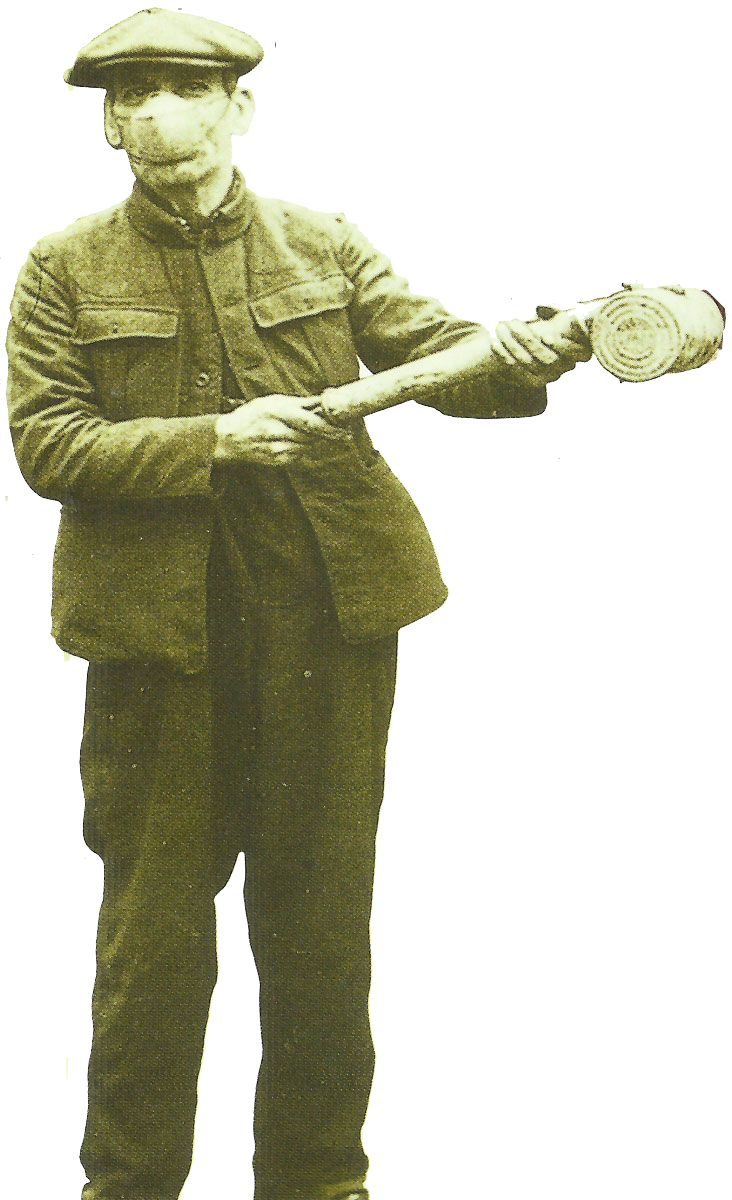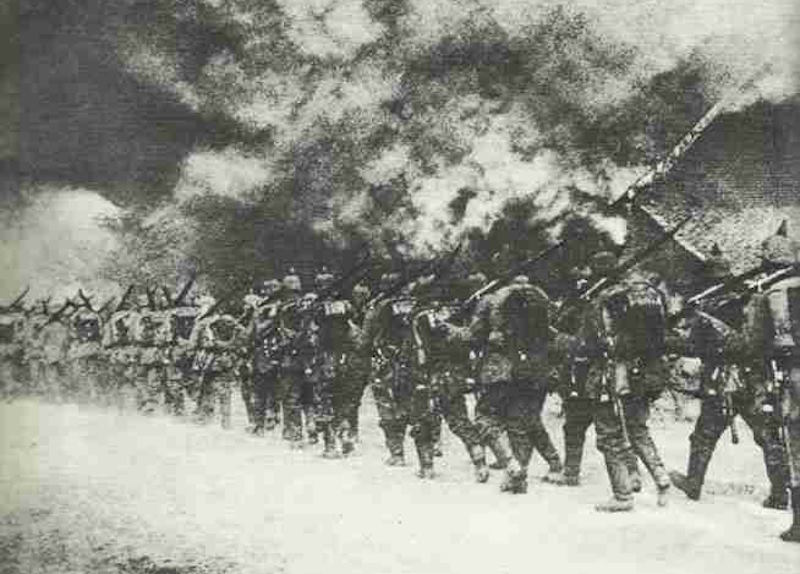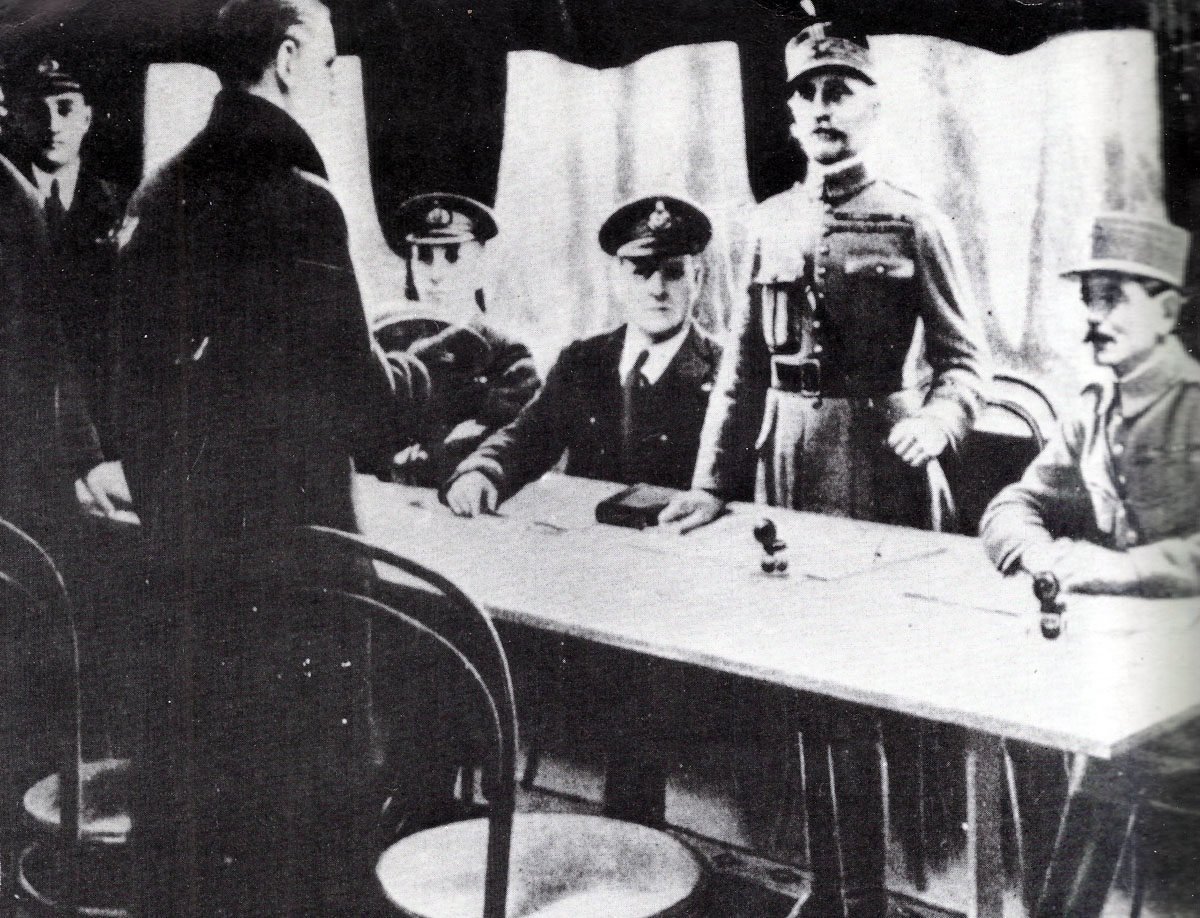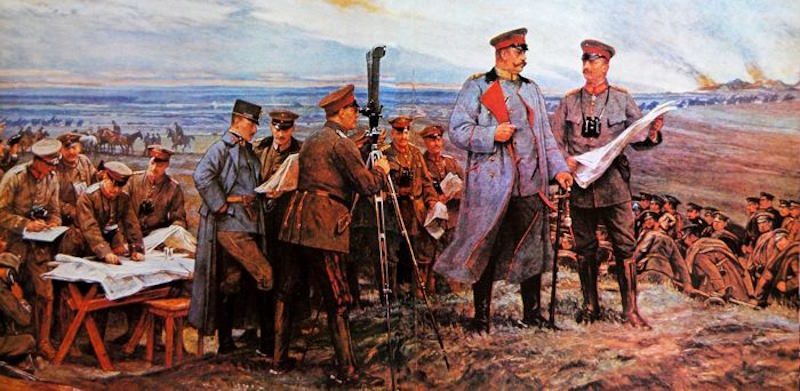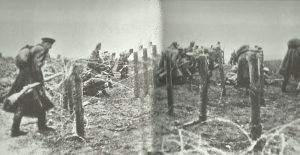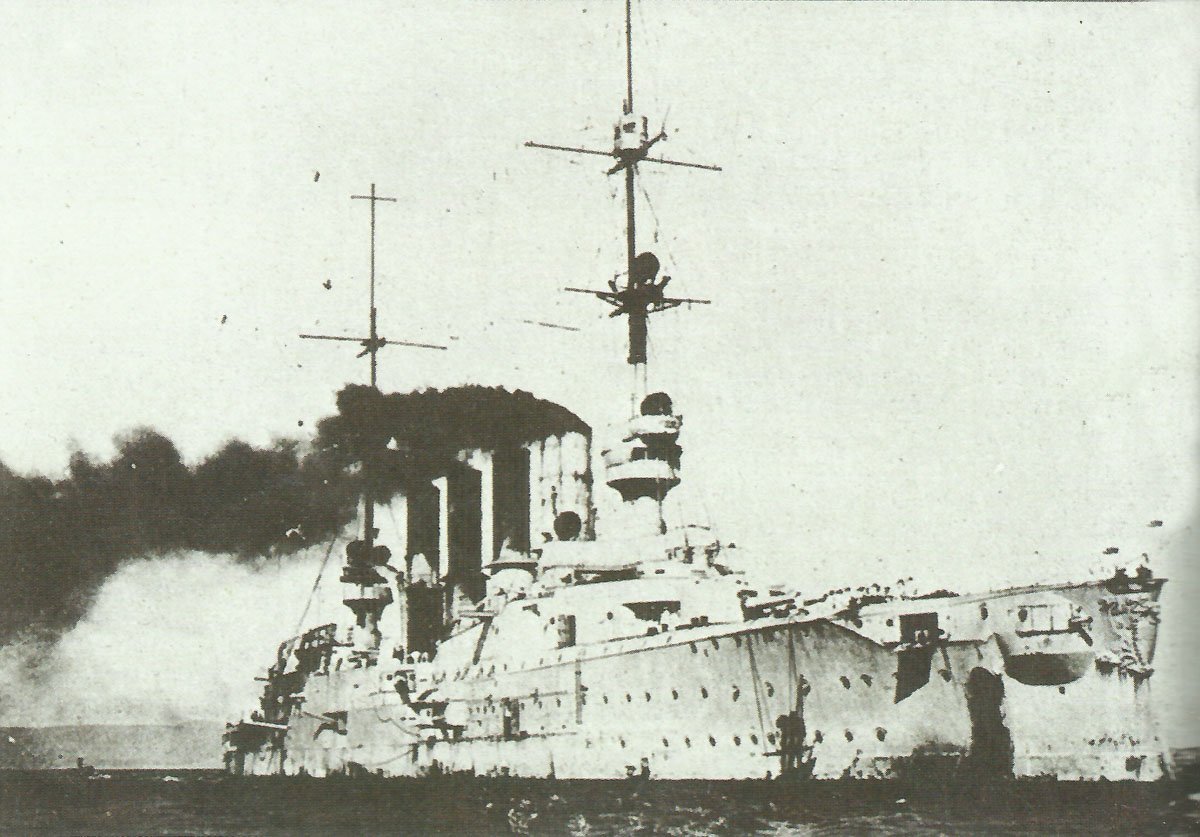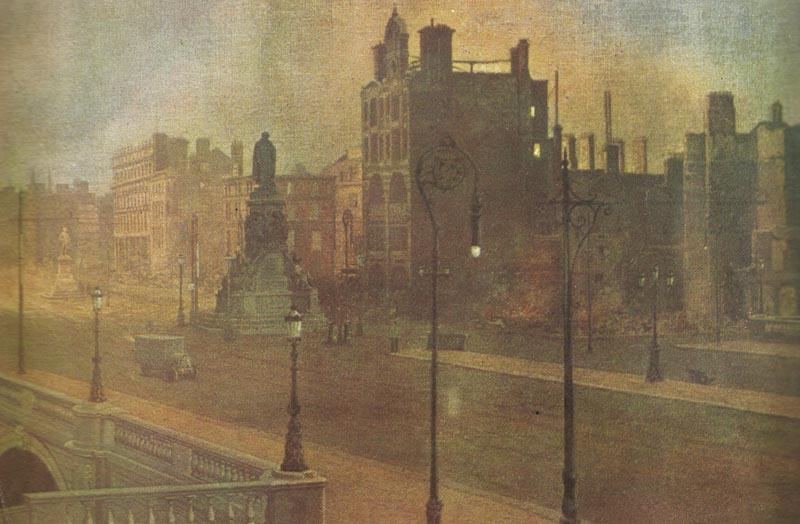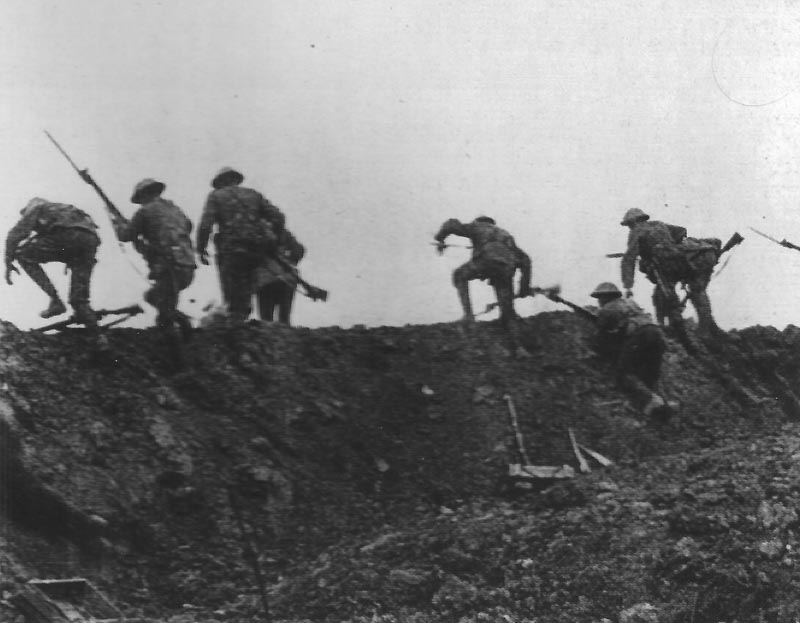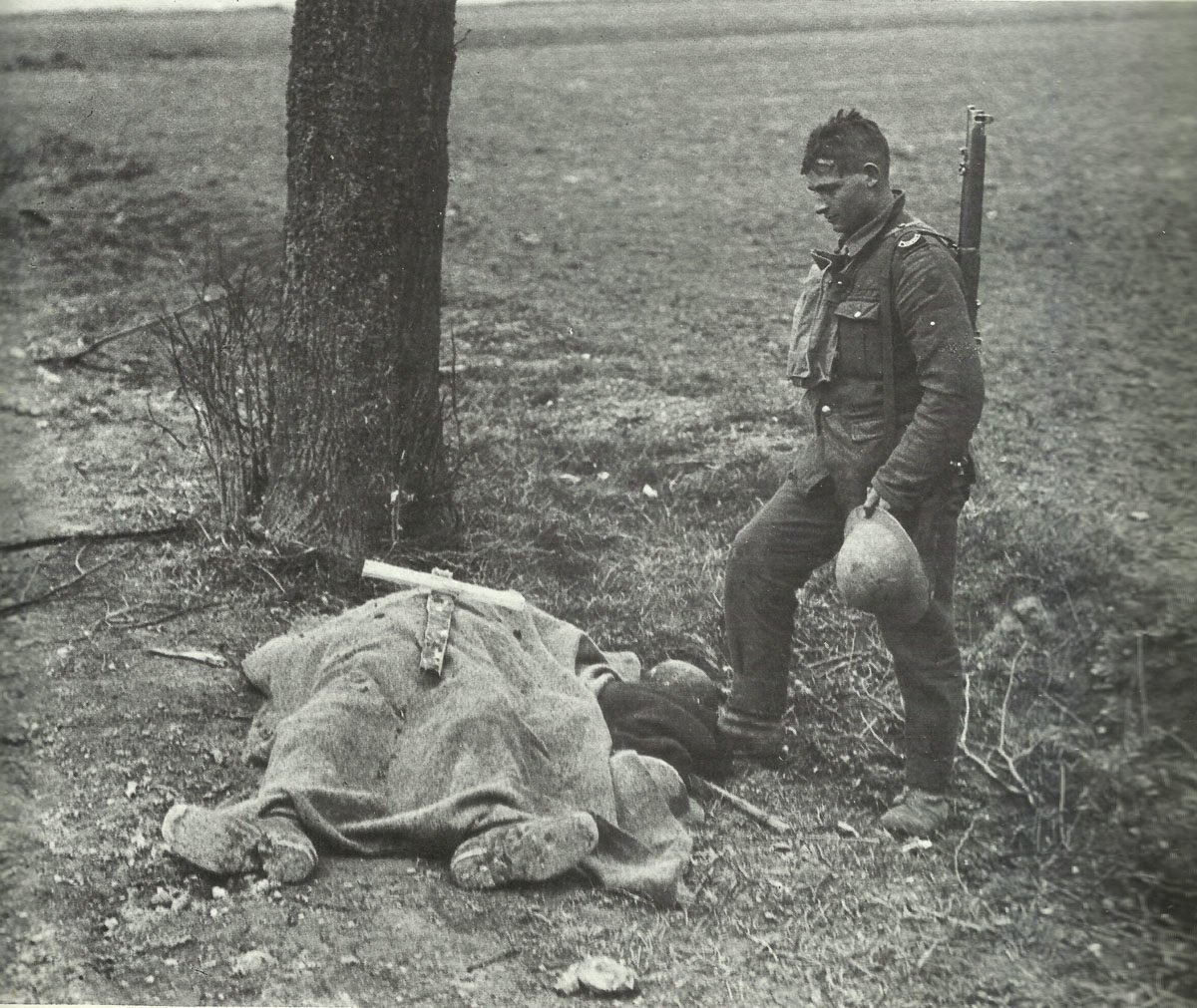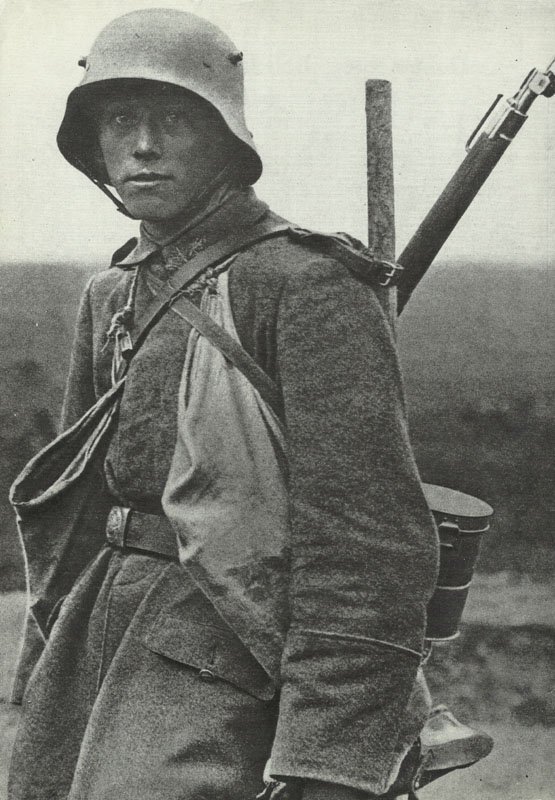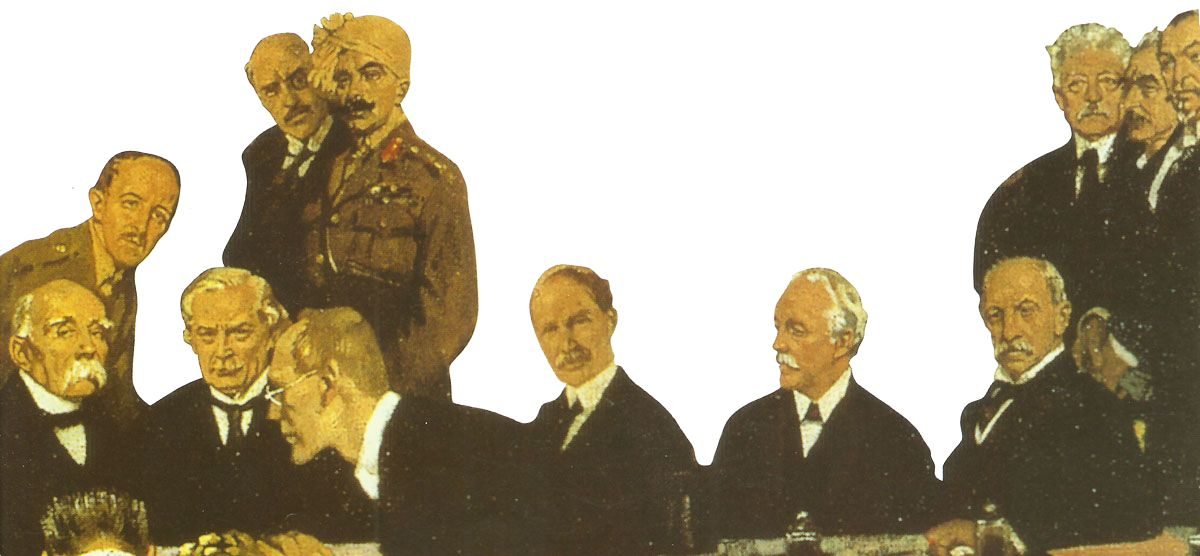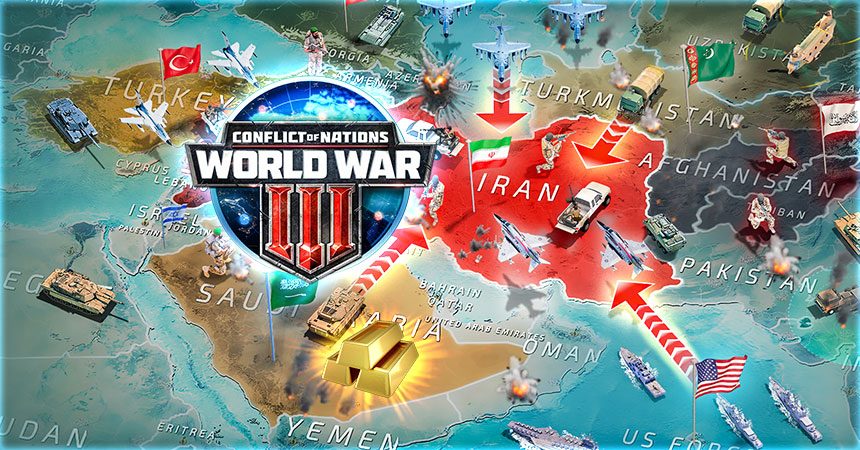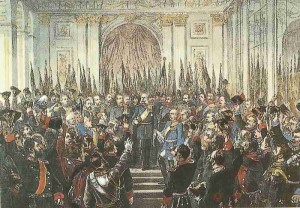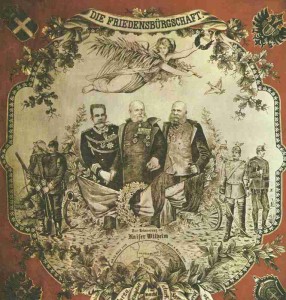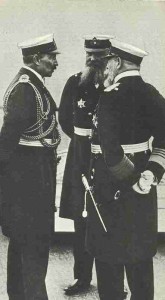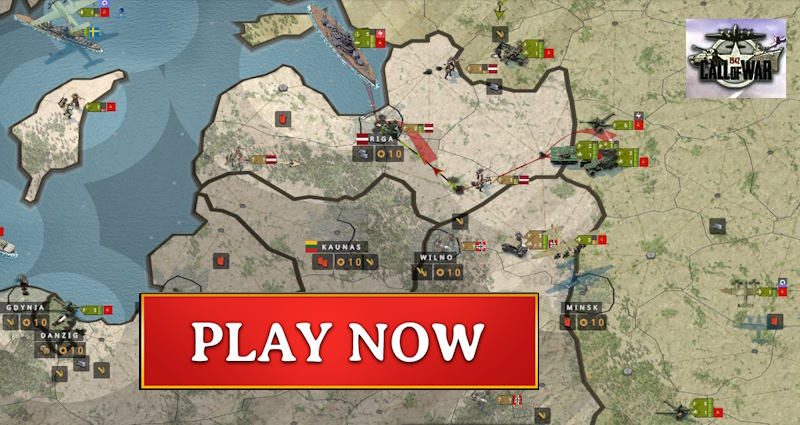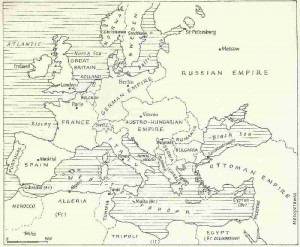History of World War One
If the Great War of 1914-18 had any single root cause it surely was the desire of the French Army and Nation to avenge the humiliations of the Franco-Prussian or Franco-German War of 1870-71. Aware that France would never acquiesce to the unification of Germany under a Prussian King (or the appalling prospect of a German prince on the vacant Spanish throne), the ‘Iron Chancellor’ , Otto von Bismarck, maneuvered the inscrutable (but weak and vacillating) French Emperor, Napoleon III, into declaring war (19 July 1870).
When Paris was shortly afterwards besieged, fiery Republican minister of the interior, Leon Gambetta escaped by hydrogen balloon to organize a levee en masse in the still unoccupied provinces. The garrison and National Guard of Paris, faced heavy odds after the ignominious surrender of Metz (27 October 1870). General Trochu continued to defend the capital and even counterattacked until January when near-starvation and heavy bombardment made further resistance impossible. The armistice was succeeded by the draconian ‘Peace of Frankfurt’.
Terms of the Treaty of Frankfurt 10 May 1871
- 1. Cession of provinces of Lorraine & Alsace (less Belfort)
- 2. German army of occupation to be stationed in 43 depts
- 3. Reparations of 5 billion francs (£200 million) to be paid by instalments
- 4. Trade: Germany to enjoy ‘Most Favoured Nation’ status vis-à-vis France
The last German garrison (at Verdun) left France in September 1873.
Less than two months after the fall of Paris, a provisional government of Socialist and far-left Republicans was elected by the ‘Commune’ of Paris in response to an attempt by the right-wing National Assembly to disarm the Paris National Guard. Civil war broke out. In ‘Bloody Week’ (May 1871), MacMahon stormed the capital and at least 20,000 Communards and innocent citizens were massacred: ‘The last stage of the Commune was not a battle but a massacre… The victors were embittered by the shame of having to fight a fresh war against their own countrymen under the disdainful eyes of the Prussians … Despite … orders from MacMahon that the lives of prisoners should be spared, the victors killed without mercy’ (The Development of Modern France by Sir Denis Brogan, London 1967).
The trauma of these catastrophic events was so severe that in 1889 a shallow opportunist general and Minister of War (Boulanger) was nearly able to provoke a war with his anti-German speeches. Seven years later, an accusation that Captain Alfred Dreyfus, born of a Jewish family at Mulhouse (Alsace), had betrayed the specification of France’s revolutionary soixante-quinze (75mm) quick-firing field-gun to Germany, sparked off a protracted series of crises. These more than once threatened to tear French society apart. Although the entirely innocent Dreyfus was brought back from the living hell of Devil’s Island (near the modern Kourou space center), declared innocent on appeal and reinstated in his military rank (1906); the venom spewed out during the Affair should have been a warning that if, and when, the opportunity ever arose for a renewed Franco-German trial of strength it could easily escalate into a bestial struggle for national survival.
Both Russia and Austria were eager to dominate the Balkans, where the once-omnipotent Ottoman armies of occupation had been pushed back almost to the gates of Constantinople in 1912-13. Germany, too, aimed at securing a trans-Balkan corridor as a key element of a grandiose Berlin-Baghdad rail link for which she had received a concession in 1899.
Imperial Germany nursed the conviction that she had been cheated of a fair share of the spoils in the 19th-century ‘Scramble for Africa’ proper. Between 1884 and 1890 she had established protectorates over Togoland, the Cameroons, South-West Africa and Tanganyika. But compared with France’s richly endowed and populous territories, stretching from Morocco to the lower Congo and east to the ‘Great Red Island’ of Madagascar, German Africa was of little account. Even so, Berlin felt impelled to initiate Tirpitz’s naval expansion program from 1897, to safe ‘guard her developing overseas trade routes. This soon escalated into a deadly ‘Naval Race’ with Britain.
From 1904 to 1914 a series of crises increasingly threatened the long-established European balance of power - Algeciras (1906); Bosnia-Herzegovina (1908); Agadir (1911); Italo-Turkish War (1911-12); First and Second Balkan Wars (1912-13); Sarajevo (1914). On 28 June 1914 the Archduke Francis Ferdinand, heir to the venerable Austrian Emperor Francis Joseph, was assassinated by Serb-armed nationalists during an official visit to the town of Sarajevo. Austria declared war on Serbia, 28 July 1914, with the aim of achieving a rapid, local conquest of a perceived South Slav nuisance. When Russia mobilized in that Balkan kingdom’s support, Germany declared war on Russia and France and invaded neutral Belgium, a country whose ‘perpetual neutrality had been guaranteed by all the Great Powers since the 1839 Treaty of London. Britain declared war on Germany (4 August) and Austria (12 August 1914).
Although not legally bound to do so, the self-governing former British dominions, Canada, Australia and New Zealand joined forces with the Motherland in the hour of supreme trial. So did the Princes of the vast Indian Empire. Only South Africa hesitated. However, a pro-German Boer rebellion war was suppressed by Smuts and Botha and South Africa entered the war. Italy, invariably treated with condescending patronage by Germany and Austria (and not consulted by the latter after Sarajevo), saw no good reason to rush to the support of her Triple Alliance partners. Accordingly, she remained neutral until May 1915.
Three dynastic mighty empires – Germany, Austria and Russia – were swept into the dustbin of history. And a far flung but decrepit oriental despotism – Ottoman Turkey – also fell to be transformed into a compact Westernized secular republic; her outer provinces ultimately becoming the new Middle East states of Arabia, Iraq (Mesopotamia), Syria and Jewish-settled Palestine.
Out of the European melting-pot there soon emerged Communist Russia, a restored independent Poland, the new states of Yugoslavia and Czechoslovakia, and later Fascist Italy followed by Nazi Germany.
References and literature
Illustrierte Geschichte des Ersten Weltkriegs (Christian Zentner)
History of World War I (AJP Taylos, S.L. Mayer)
Der Erste Weltkrieg – Storia illustrata della Prima Guerra Mondiale (Hans Kaiser)
Der I. Weltkrieg – Eine Chronik (Ian Westwell)
Chronicle of the First World War, 2 Bände (Randal Gray)
Unser Jahrhundert im Bild (Bertelsmann Lesering)


